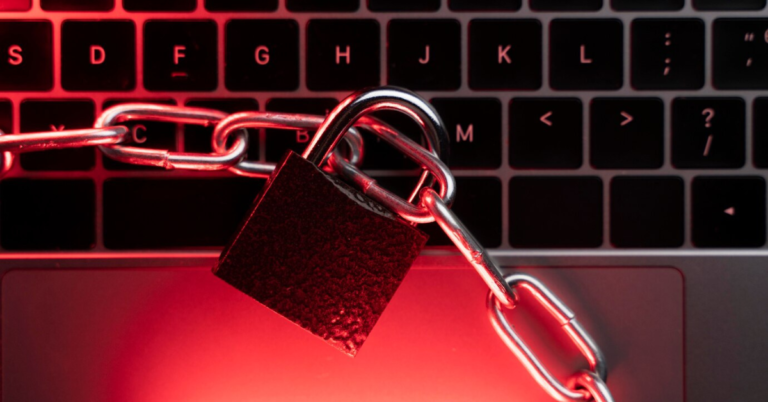185.63.253.300: What You Need to Know About This IP Address
In today’s interconnected world, every device we use online is linked through a unique identifier known as an IP address. While most people rarely think twice about these strings of numbers, they form the backbone of the internet. One such address, 185.63.253.300, has drawn attention for various reasons. But what does it really mean? Is it just a random sequence or does it carry more significance?
In this article, we will explore the meaning and structure of 185.63.253.300, common misconceptions, security implications, and how understanding IP addresses can benefit both individuals and organizations.
Table of Contents
- Understanding IP Addresses
- What Is 185.63.253.300?
- Is 185.63.253.300 a Valid IP Address?
- Why IP Addresses Matter
- IPv4 vs. IPv6: A Quick Overview
- Common Uses of IP Addresses
- Table: IP Address Classes and Their Uses
- Security Implications of IP Addresses
- Geolocation and Privacy Concerns
- Misconceptions About Suspicious IPs
- How to Investigate an IP Address
- Conclusion and Call to Action
- Frequently Asked Questions (FAQs)
Understanding IP Addresses
An IP (Internet Protocol) address is a numerical label assigned to each device connected to a computer network that uses the Internet Protocol for communication. It serves two primary purposes:
- Identifying the host or network interface
- Providing the location of the host in the network
Think of an IP address as a mailing address for your device on the internet. Without it, sending and receiving data would be impossible.
What Is 185.63.253.300?
At first glance, 185.63.253.300 appears to be a standard IPv4 address. However, there’s a critical point to consider: the last octet, 300, exceeds the allowed range for IPv4 addresses.
An IPv4 address consists of four numbers separated by periods, with each number (octet) ranging from 0 to 255. This means 185.63.253.300 is not technically a valid IPv4 address. A valid version would look something like 185.63.253.200 or 185.63.253.255.
Despite this, it’s useful to understand why such numbers are often mentioned and what people might be trying to identify when referencing them.
Is 185.63.253.300 a Valid IP Address?
The short answer is no. Because IPv4 addresses are limited to values between 0 and 255 in each segment, 185.63.253.300 falls outside the acceptable range. This could mean:
- A typographical error in the last octet.
- A placeholder used in technical discussions or examples.
- An intentional obfuscation for privacy or security purposes.
Why IP Addresses Matter
IP addresses are crucial for the following reasons:
- Routing: Directing data packets to the correct destination.
- Device identification: Distinguishing between different devices on a network.
- Security monitoring: Identifying malicious activity or unauthorized access.
- Geolocation: Determining the approximate physical location of a user or device.
Without IP addresses, seamless internet communication would not be possible.
IPv4 vs. IPv6: A Quick Overview
While 185.63.253.300 (or any similar number) might resemble an IPv4 address, it’s important to understand the two primary types of IP addresses:
- IPv4: Uses a 32-bit address space, creating approximately 4.3 billion unique addresses.
- IPv6: Uses a 128-bit address space, providing a virtually limitless number of addresses.
IPv6 was developed to address the exhaustion of available IPv4 addresses.
Common Uses of IP Addresses
IP addresses are used in countless applications, including:
- Web browsing: Connecting users to websites.
- Email services: Routing email data across servers.
- Network security: Monitoring traffic and detecting threats.
- Streaming services: Delivering content based on region and user settings.
- Online gaming: Facilitating real-time multiplayer connections.
They also play a role in personalized advertising and content delivery.
Table: IP Address Classes and Their Uses
| Class | Starting Range | Ending Range | Common Uses |
| A | 1.0.0.0 | 126.255.255.255 | Large networks, ISPs |
| B | 128.0.0.0 | 191.255.255.255 | Medium-sized businesses |
| C | 192.0.0.0 | 223.255.255.255 | Small businesses and homes |
| D | 224.0.0.0 | 239.255.255.255 | Multicast groups |
| E | 240.0.0.0 | 255.255.255.254 | Reserved for future use |
This table helps illustrate how different IP ranges serve specific purposes.
Security Implications of IP Addresses
IP addresses are critical in cybersecurity. They can:
- Identify potential threats by tracing malicious activity back to a source.
- Enable blocking or filtering of unwanted traffic.
- Support forensic investigations following cyberattacks.
However, IP addresses can also be spoofed or masked, making it important not to rely solely on them for security decisions.
Geolocation and Privacy Concerns
Many people don’t realize that their IP address can reveal:
- Geographical location (often down to the city or region)
- Internet Service Provider (ISP)
- Potential browsing activity
This has sparked privacy concerns, especially as advertisers and hackers may attempt to use IP data for tracking or targeted attacks.
Using VPNs (Virtual Private Networks) or proxy servers is one common method of masking or changing an IP address to enhance privacy.
Misconceptions About Suspicious IPs
It’s easy to panic when encountering unfamiliar IP addresses like 185.63.253.300. Common misconceptions include:
- Assuming all unknown IPs are malicious
- Believing that IP addresses can reveal exact personal information
- Thinking an invalid IP (like 185.63.253.300) must be a hacking attempt
In reality, many IPs are used by benign services like search engines, content delivery networks, or even internal error testing systems.
How to Investigate an IP Address
If you come across a suspicious or unfamiliar IP address, consider the following steps:
- Check Validity
- Confirm whether the IP format is correct.
- Use Online Tools
- Services like WHOIS, IPinfo, and AbuseIPDB can provide information about the IP’s origin and reputation.
- Monitor Activity
- If the IP appears in your server logs or firewall alerts, track the frequency and timing of access.
- Consult Security Professionals
- For repeated or high-risk encounters, involve cybersecurity experts or IT administrators.
- Educate Yourself
- Understanding basic networking can help demystify what different IP addresses represent.
Conclusion
Understanding IP addresses like 185.63.253.300 is crucial for anyone navigating the internet today. While this specific number is technically invalid, the discussion around it highlights the importance of IP literacy in a world where digital identifiers shape our online experiences, security, and privacy.
Being informed about what IP addresses mean, how they are used, and how to interpret them can help both individuals and businesses stay secure and make better decisions in the digital space.
Stay informed. Stay secure. And always question what numbers like 185.63.253.300 might mean before drawing conclusions.
Frequently Asked Questions (FAQs)
Is 185.63.253.300 a valid IP address?
No, because the last octet (300) exceeds the maximum value of 255 allowed in IPv4 addresses.
Why might I see 185.63.253.300 mentioned online?
It could be used as an example, a placeholder, or the result of a typographical error.
Can an invalid IP address like 185.63.253.300 pose security risks?
An invalid IP itself cannot pose risks, but if it appears frequently in logs or alerts, further investigation might be warranted to rule out configuration errors or spoofing attempts.
How can I protect my IP address privacy?
Use VPNs, configure firewall settings properly, and avoid sharing your IP publicly.
Should I block unknown IP addresses on my network?
It depends on context. Single or occasional appearances may not warrant action, but repeated or suspicious activity should be reviewed and potentially blocked.







